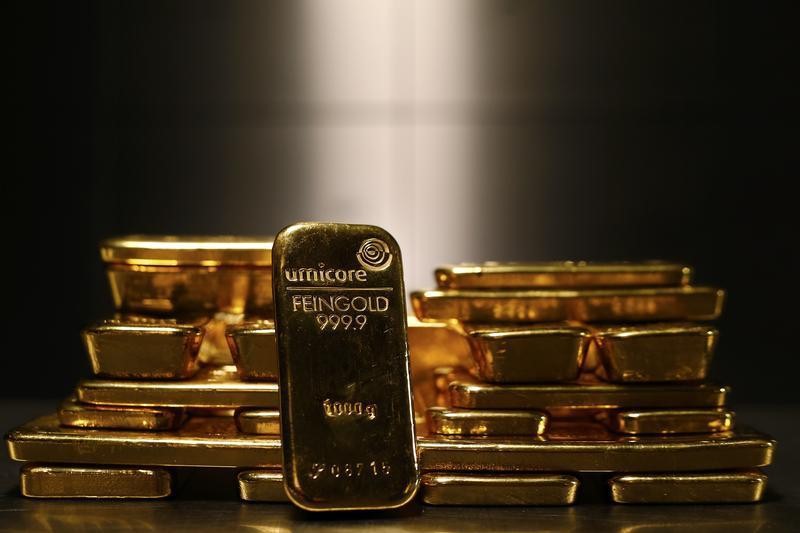By Barani Krishnan
Investing.com - Gold retreated on reduced trade-war tensions Tuesday after the Trump administration decided to delay some tariffs on China. But it hit six-year highs in earlier trading on Hong Kong’s political chaos and plunging bond yields worldwide.
Both bullion and gold futures fell after the U.S. Trade Representative delayed until December a 10% import tariff meant to start by September on laptops, cell phones, video-game consoles and other made-in-China products. The decision led to widespread hope that the trade war between the two countries was on the mend.
{68|Spot gold}}, reflective of trades in bullion, was down $9.53, or 0.6% at $1,501.55 per ounce by 2:10 PM ET (18:00 GMT) as Wall Street’s main stock indexes jumped more than 1% each on the heightened risk appetite. Earlier, bullion surged to $1,534.94, its highest level since April 2013, on a new wave of safe-haven buying.
Gold futures for December delivery traded on the Comex division of the New York Mercantile Exchange, settled down $3.10, or 0.2%, at $1,514.10. It hit $1,545.95 earlier, a peak not seen since August 2013.
Gold rallied earlier in the session as Hong Kong remained on the edge from tensions as the territory’s leader Carrie Lam said further violence involving protests could push the territory “down a path of no return.” Analysts warned that the situation could escalate quickly if Beijing decides to act with military force, increasing demand for the safe-haven precious metal.
President Donald Trump tweeted that the Chinese government is moving troops to the "(b)order" with Hong Kong.
Adding to the risk-off sentiment, the surprise defeat of President Mauricio Macri in Argentina’s primary elections over the weekend led to speculation that the country could once again be on the road to default.
Longs in gold had also latched on earlier to the sentiment in bond markets, where the yield on the 10-year Treasury note fell to levels not seen since 2016, while the 30-year yield headed toward all-time lows.
Investors have picked up bonds at the greatest rate since the 2008 global financial crisis, according to the latest Bank of America Merrill Lynch (NYSE:BAC) investor survey that showed U.S. government bonds were the "most crowded" trade for the third-straight month.
“A casual glance around the global news outlets each day suggests many more reasons traders want to own gold than not,” Jeffrey Halley, market strategist at Oanda, said in a note.
On the economic calendar, July inflation data for the U.S. showed a slightly stronger-than-expected reading, paring earlier gains in gold.
